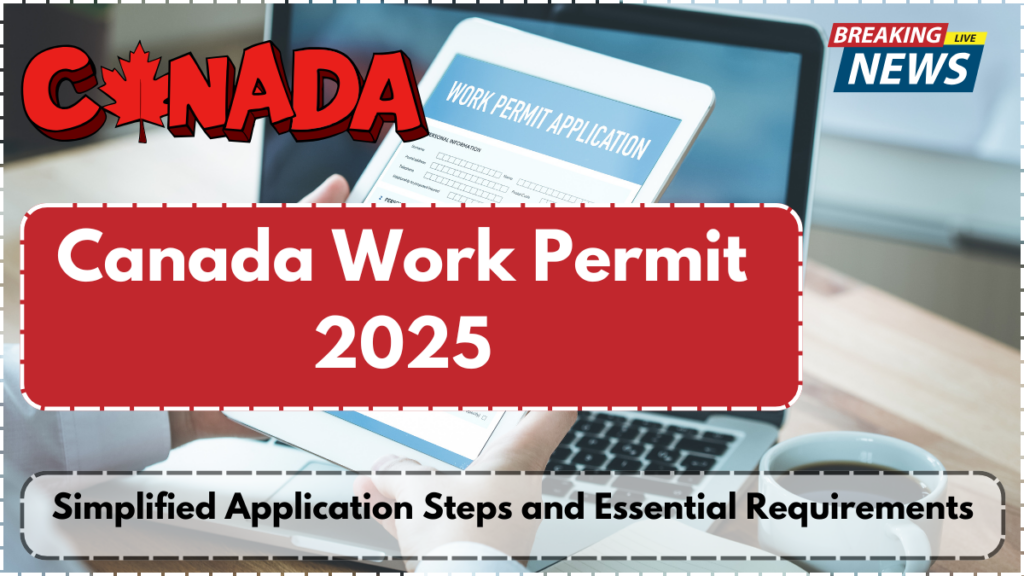As of May 2025, Canada continues to hold its reputation as a premier destination for skilled professionals worldwide. Known for its stable economy, inclusive society, and high standard of living, the country attracts individuals looking for enhanced job prospects and long-term career advancement. With the growing demand for talent across multiple sectors, foreign nationals are increasingly drawn to Canada. However, a clear understanding of the work authorization options is essential before making the move.

Two Main Work Authorization Pathways in Canada
Canada offers two primary categories of work permits for foreign nationals: the Employer-Specific Work Permit and the Open Work Permit. Each serves distinct purposes and is governed by different conditions based on the applicant’s background and employment goals.
Employer-Specific Work Permit: Structured and Role-Oriented
The Employer-Specific Work Permit ties the employee to a designated employer under clearly defined terms. These include job title, location, and duration of employment. In most scenarios, employers must obtain a Labour Market Impact Assessment (LMIA), which confirms the necessity of hiring a foreign worker without affecting local job opportunities.
This pathway is ideal for professionals who have secured a job offer in Canada and are prepared to commit to a specific role for a set period. It ensures the Canadian labor market remains balanced while welcoming foreign talent for specialized or in-demand positions.
Open Work Permit: Flexible and Inclusive Employment Opportunities
Unlike the employer-specific permit, the Open Work Permit provides more freedom. It allows individuals to work for almost any employer in Canada without requiring an LMIA. This type of permit is generally available under specific programs such as:
- Post-Graduation Work Permit: For international students who have completed eligible Canadian educational programs.
- Spousal Open Work Permit: For spouses or partners of skilled workers or international students.
- Humanitarian and Public Policy Programs: For individuals under exceptional or compassionate grounds.
This flexibility benefits those who wish to explore various sectors or adapt their career paths while residing in Canada.
Eligibility Requirements for Canadian Work Permits in 2025
To qualify for a Canadian work permit, applicants must meet several important criteria:
- Job Offer: Required for employer-specific permits.
- Skill Match: Applicants must showcase relevant qualifications and professional experience.
- Financial Support: Proof of sufficient funds to support oneself during their stay is mandatory.
- Criminal Record Check: Clean criminal history may be required depending on the nature of employment.
- Medical Exam: Especially for occupations involving public health or safety.
- Intent to Leave Canada: Unless transitioning to permanent residence, applicants must confirm plans to exit Canada after the permit expires.
Work Permit Application Process: Step-by-Step
Navigating the Canadian work permit application involves several key steps:
- Secure a Job Offer (for employer-specific permits).
- Employer Applies for LMIA, if necessary.
- Submit Application via IRCC: Includes uploading all documents, paying fees, and completing forms.
- Biometrics and Medical Exam: Scheduled as needed.
- Receive POE Letter of Introduction: Must be presented at the Canadian border.
- Obtain Actual Work Permit: Issued upon arrival, after verifying documentation.
Documentation: The Cornerstone of Success
An applicant’s attention to documentation is pivotal. Essential documents include:
| Document Type | Purpose |
|---|---|
| Valid Passport | Identity verification |
| Job Offer Letter | Confirms employment details |
| Proof of Qualifications | Demonstrates eligibility for the role |
| Financial Statements | Verifies ability to support oneself |
| Medical and Police Reports | Ensures health and safety compliance |
Submitting complete, accurate, and well-organized documentation significantly enhances approval chances.
Keeping Up With Policy Updates
Immigration rules and work permit guidelines are regularly updated to meet Canada’s labor market needs. In May 2025, the IRCC continues to refine eligibility criteria and streamline processing times. Prospective workers are encouraged to frequently consult the official IRCC portal or consult with certified immigration professionals.
Conclusion: Launching Your Career in Canada
Securing a work permit is the gateway to starting a new chapter in Canada’s vibrant workforce. By choosing the appropriate permit type, fulfilling eligibility criteria, and carefully preparing your application, foreign professionals can establish themselves in one of the world’s most welcoming countries. Whether tied to a specific job or exploring diverse roles, Canada in 2025 offers a promising environment for professional development and personal enrichment.
Frequently Asked Questions (FAQs)
What is the difference between an Employer-Specific and an Open Work Permit?
An Employer-Specific Work Permit ties you to one employer and job, whereas an Open Work Permit allows you to work for most Canadian employers without needing a job offer or LMIA.
Can I change employers with an Employer-Specific Work Permit?
No, you cannot switch employers without applying for a new work permit. If you want flexibility, consider applying for an Open Work Permit, if eligible.
How long does it take to process a Canadian work permit in 2025?
Processing times vary by country and application type but generally range from 4 to 12 weeks. Delays can occur due to incomplete documentation or increased demand.
Is an LMIA always required?
No, LMIA is typically required for employer-specific permits, but not for open work permits, which are issued under specific programs.
Can a work permit lead to permanent residency in Canada?
Yes, many work permit holders transition to permanent residency through programs like the Canadian Experience Class or Provincial Nominee Program.
For More Information Click Here
Pari is a passionate writer known for captivating stories that blend imagination and reality. Inspired by travel, history, and everyday moments, Pari crafts narratives that resonate deeply with readers.




